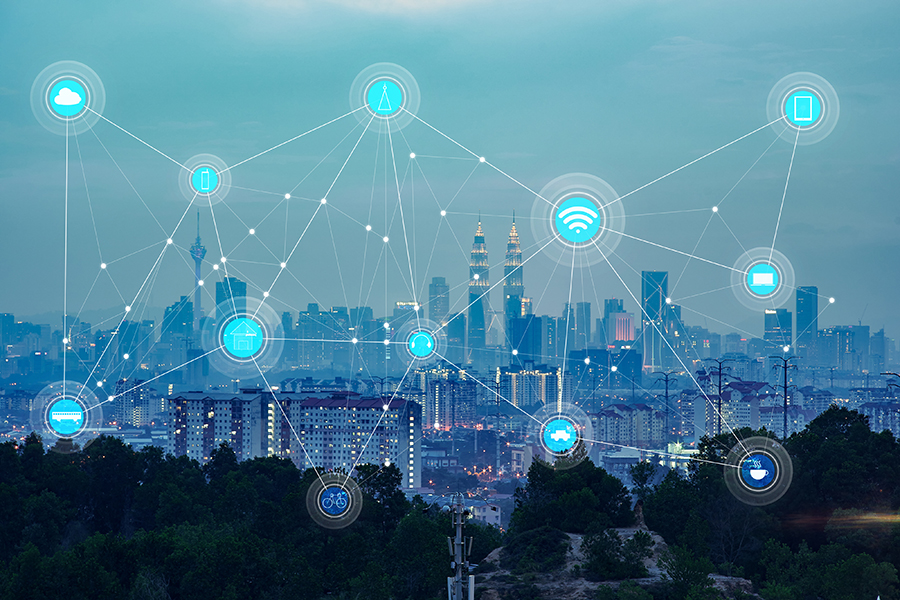
By Professor John Bryson
Department of Strategy and International Business , University of Birmingham
The shift from 4G to 5G represents a major moment of disruptive innovation that has the potential to completely transform everyday living. This is not a simple incremental improvement to the existing 4G network. This is a moment of radical innovation that will revolutionise the relationship between people, equipment, space and place. 5G comes with a tenfold increase in download speeds and it is this increase that is critical for autonomous vehicles.
Download and upload speeds 10 times faster than today will radically change how we work, and communicate. This increase in speed will lead to a wave of innovations in products and services that must be supported by instantaneous communication. Watching live video will be a seamless experience and there will be a major enhancement in the quality of video conferences. In addition, second-by-second monitoring of people and equipment will become part of everyday living.
Too good to be true?
There are two major challenges. First, 5G will alter everyday living but, at the same time, this will enhance opportunities for data capture by third parties making cyber security more critical. In addition, developments in quantum computing will destroy existing data security protocols, thus, the security of a nation’s 5G network will become increasingly important. Any possible disruptions to a heavily integrated 5G network would have major socio-economic consequences and could result in failure of equipment and infrastructure connected via 5G.
Second, the UK’s decision to limit Huawei’s involvement in this country’s 5G network to the network’s periphery. It is argued that this will be possible as UK telecommunication providers have been working with Huawei and have already developed engineering approaches intended to isolate Huawei from those parts of the network that could represent a security risk. The danger is that the 5G network will evolve rapidly and this might alter the ability for companies to isolate Huawei from the 5G core. For 5G, the core is increasingly reliant on complex algorithms and eventually the core and periphery of the 5G network could become so intertwined that it becomes impossible to isolate Huawei’s involvement with data.
Limitations of the US 5G network
Perhaps, the most interesting aspect of Huawei and 5G is the failure of the US government to support the on-going development of an American provider. Future economies, everyday living and warfare will all revolve around data, data analytics and communications. At the core of this future will be 5G infrastructure and related cybersecurity, cyber theft and cyberterrorism. The US plays a dominant role in web-based technology firms such as Facebook, Amazon, Apple, Microsoft and Google. Nevertheless, there is a critical weakness in America’s innovation ecosystem and this is centred on the absence of a provider of advanced mobile telecommunications equipment.
For 5G there are currently five major providers: Huawei (China) Nokia (Finnish), Ericsson (Swedish), Samsung (South Korean) and ZTE (China). Europe needs to continue to support Nokia and Ericsson to ensure that they remain credible providers and there is no question that the Chinese government will continue to support Huawei and ZTE. For the future of US national security it is critical that the US government encourage and support the emergence of an American provider of telecommunications infrastructure.
The future is known and it is one in which telecommunication networks play an increasingly all-embracing role in everyday living. Defence increasingly rests on data protection and data analytics. The danger is that the more complex a telecommunications network becomes then the more it is exposed to theorist-, private- and state-sponsored hackers. In the near future, hacking could disrupt essential utilities (water, electricity, and telecommunications) and transportation networks.
For the UK government, the critical issue is to ensure that it undertakes the primary role of government – the protection of citizens. This is an on-going challenge and the onset of 5G further complicates the ability of a government to protect its citizens from harm.
